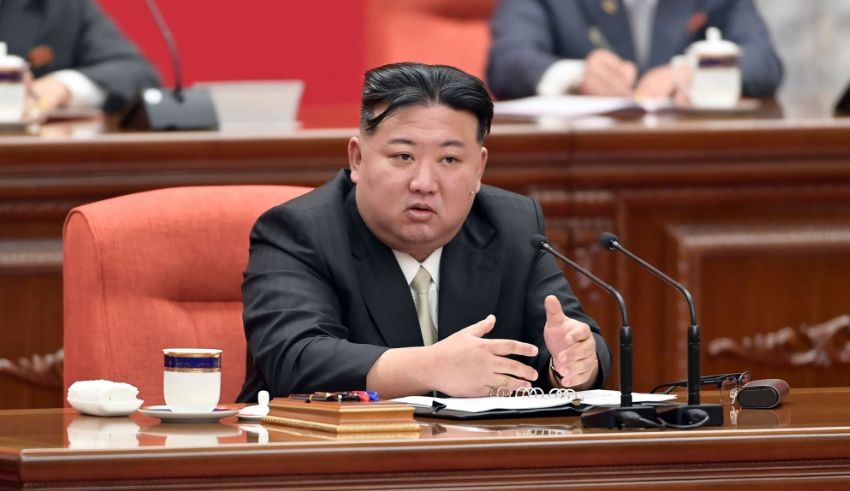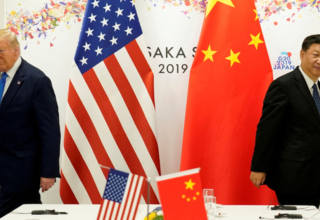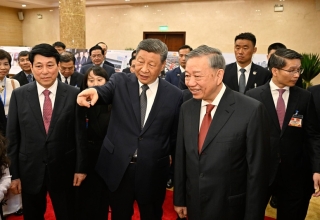
North Korean leader Kim Jong Un has issued a daring and defiant statement, saying that he has the right and the power to wipe out South Korea, his longtime enemy and rival. Kim made the remarks during a visit to the Ministry of People’s Armed Forces on Thursday, where he celebrated the 78th anniversary of the founding of the Korean People’s Army.
Kim’s Rationale and Rhetoric
Kim’s rationale for his threat to annihilate South Korea was based on his claim that the South had rejected his offer of dialogue and cooperation, and had instead pursued a policy of hostility and absorption. Kim accused the South of being a puppet of the US, and of violating the inter-Korean agreements and the spirit of national unity. Kim also blamed the South for the failure of the peace process and the denuclearization talks, which he said were the only way to prevent a war.
Kim’s rhetoric was harsh and provocative, as he called South Korea his “primary enemy” and “enemy No.1”, and said that it could be attacked and destroyed at any time, based on the legality of self-defense. Kim also warned that any provocation or aggression from the South would be met with a “decisive and merciless” response, and that the North would not hesitate to use its “superpower” to change history and create a new era of reunification.
Kim’s Motives and Objectives
Kim’s motives and objectives for his threat to wipe out South Korea were likely to be a combination of domestic and external factors, such as:
- Consolidating his power and legitimacy: Kim may have wanted to boost his power and legitimacy at home, by portraying himself as a strong and confident leader, who can defend the country and the people from external threats and enemies. Kim may have also wanted to rally and mobilize his people, especially the military, behind his ideology and vision, and to divert their attention from the economic and social problems that the country faces, such as sanctions, poverty, and COVID-19.
- Increasing his leverage and influence: Kim may have wanted to increase his leverage and influence in the region and the world, by demonstrating his military capabilities and resolve, and by creating a sense of urgency and crisis. Kim may have also wanted to pressure and provoke the US and its allies, such as South Korea and Japan, to resume the dialogue and negotiations with him, and to offer him more concessions and incentives, such as sanctions relief and security guarantees.
- Pursuing his strategic and national interests: Kim may have wanted to pursue his strategic and national interests, by advancing his nuclear and missile programs, which he sees as vital for his survival and deterrence. Kim may have also wanted to achieve his ultimate goal of reunifying the Korean Peninsula under his rule, by weakening and intimidating the South, and by exploiting the divisions and differences among the stakeholders, such as the US, China, and Russia.
Keep Reading
Kim’s Implications and Consequences
Kim’s threat to wipe out South Korea has serious and negative implications and consequences for the region and the world, such as:
- Escalating the tensions and risks of war: Kim’s threat to annihilate South Korea has escalated the tensions and risks of war on the Korean Peninsula, which is one of the most volatile and dangerous flashpoints in the world. Kim’s threat has also increased the chances of miscalculation and miscommunication, which could lead to accidental or intentional clashes or conflicts that could spiral out of control and involve the major powers, such as the US, China, and Russia.
- Undermining the peace and stability of the region: Kim’s threat to destroy South Korea has undermined the peace and stability of the region, which is vital for the security and prosperity of the countries and the people in Northeast Asia and beyond. Kim’s threat has also damaged the trust and cooperation among the parties, and has complicated the efforts and initiatives to resolve the issues and challenges in the region, such as the denuclearization of North Korea, the human rights of the North Korean people, and the humanitarian and environmental crises in the North.
- Violating the international law and norms: Kim’s threat to wipe out South Korea has violated the international law and norms, which prohibit the use or threat of force against other countries, and which promote the peaceful settlement of disputes and the respect for sovereignty and territorial integrity. Kim’s threat has also challenged the international community and the international order, and has called for a strong and united response and action from the UN and other relevant organizations and actors.
Kim’s threat to wipe out South Korea is a daring and defiant statement, that reflects his hostility and ambition, his insecurity and frustration, and his strategy and calculation. Kim’s threat is a challenge and a danger, that requires constant and collective vigilance and preparedness, to prevent and deter any aggression or provocation from the North. Kim’s threat is also an opportunity and a catalyst, that calls for renewed and sincere dialogue and engagement, to achieve a peaceful and lasting solution to the Korean Peninsula issue.





























